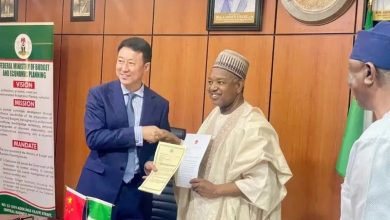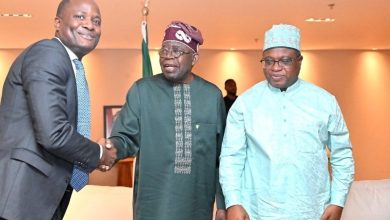Senate Extends 2024 Budget Implementation to December 2025 to Prevent Project Abandonment
Senate extends 2024 capital budget deadline to December 2025 to finish key projects.
Lawmakers say delay avoids waste and ensures infrastructure goals aren’t abandoned midstream.
The Nigerian Senate has approved a second extension of the capital implementation phase of the 2024 federal budget, moving the deadline to 31 December 2025. The decision, made during Tuesday’s plenary, is aimed at allowing the federal government sufficient time to complete several ongoing infrastructure and capital projects across the country.
This resolution followed the presentation of an appropriation amendment bill, which was read and passed through all legislative stages in a single session. Deputy Senate President Barau Jibrin announced the passage, which was supported by a majority of senators.
The extension bill was also reviewed by the Senate Committee on Supply and presented by Senator Olamilekan Adeola, who chairs the Senate Committee on Appropriation. In his address, Adeola emphasized the critical need for additional time to ensure that capital projects already captured in the 2024 budget reach completion, especially in light of Nigeria’s fiscal constraints.
“The federal government does not currently have enough resources to accommodate all the proposed expenditures within a single fiscal year,” he explained. “Extending the implementation window is necessary to avoid leaving key federal projects incomplete or abandoned.”
This marks the second time the 2024 capital budget implementation has been extended. The initial extension was approved in December 2024 after President Bola Tinubu formally requested that the deadline be moved from 31 December 2024 to 30 June 2025. The president at the time argued that the extension would allow the executive arm to finalize projects and make better use of budget allocations.
That extension, like the latest one, received broad backing from both chambers of the National Assembly, despite some criticism from policy analysts and civic groups who questioned the government’s capacity to execute budgets effectively.
As the previous June 2025 deadline neared, it became apparent that several high-priority projects under the 2024 budget had yet to be completed, prompting the Senate to approve another extension to the end of the year.
The new development means Nigeria is currently running two parallel budgets: the 2024 budget, which remains in partial implementation, and the 2025 budget, which has already been passed and is active. This situation is not unprecedented but poses coordination challenges for government agencies responsible for budget execution and monitoring.
While some observers argue that multiple extensions reflect inefficiencies and weak execution capacity within Ministries, Departments, and Agencies (MDAs), others believe the decision is pragmatic. They argue that it ensures continuity of government efforts, prevents waste of funds already disbursed, and safeguards ongoing infrastructure investments.
Senator Adeola reinforced this view during his presentation, calling on his colleagues to view the extension as a necessary step toward fulfilling the government’s infrastructure promises. “This decision is in the best interest of Nigerians,” he said. “It is better to finish what we started than to leave these projects hanging, especially when resources have already been committed.”
As budget implementation progresses, the Senate has vowed to intensify oversight, ensuring that both the 2024 and 2025 budgets are executed effectively and transparently. Lawmakers have also called on the executive arm to improve project management, boost internal efficiency, and enhance monitoring mechanisms to avoid future delays and recurrent extensions.
With this new deadline now set, all eyes will be on federal agencies to deliver results before December 2025 and ensure that Nigeria’s budgetary process achieves both fiscal discipline and developmental impact.



